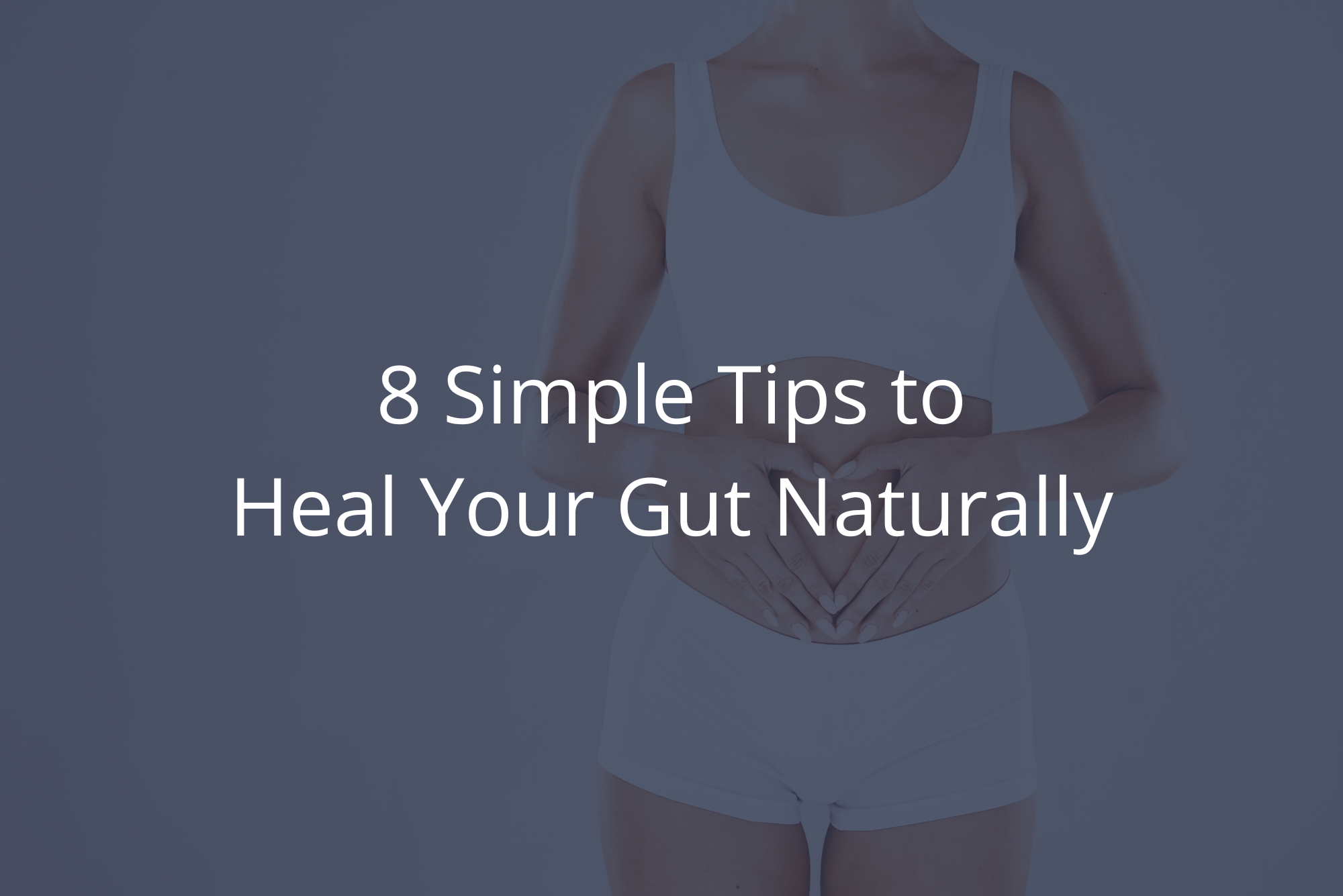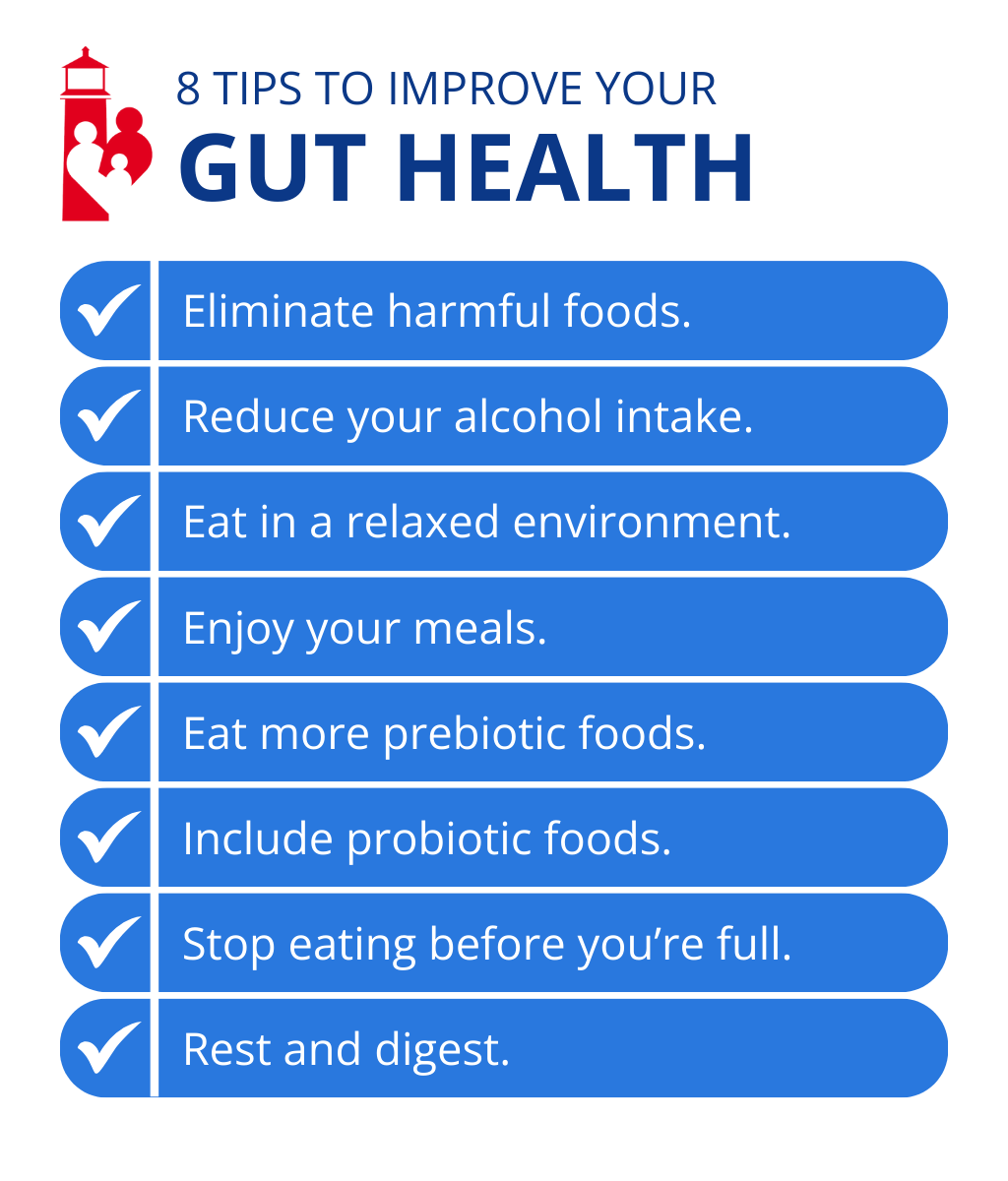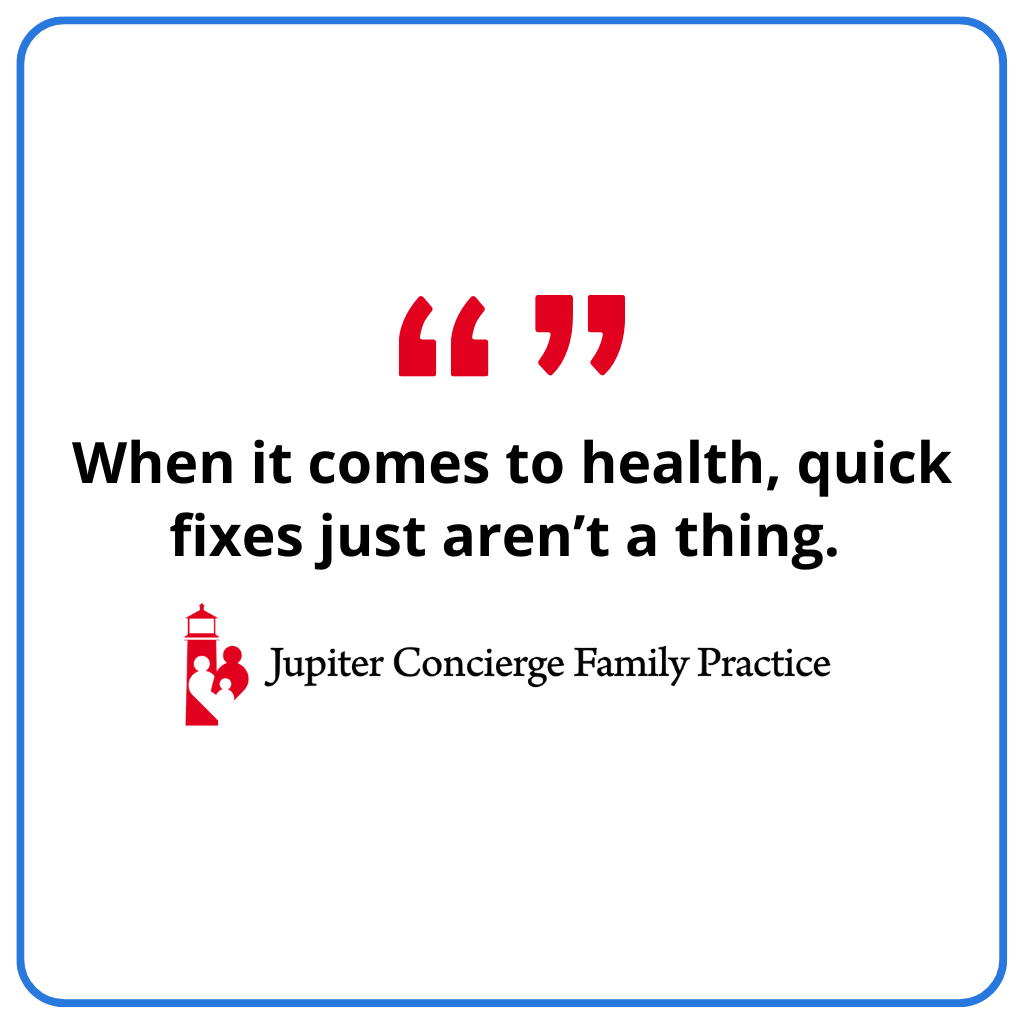
There are many ways to explain how the human body works, and many of those connections come back to the gut.
Mainstream medicine is now aware that 60–70% of our immune system lives in the gut. That’s great news when we’re searching for ways to support our health because it means we have many options at our fingertips.
What it doesn’t mean, however, is that a magic gut pill can solve all our problems. Gut health, like all true health, requires consistent care over time. Quick fixes just aren’t a thing.
In this post, we talk about the best ways to heal your gut naturally and, as a consequence, augment your overall health.
Natural Gut Healing vs. Pharma Gut ‘Band-Aids’
Functional medicine encourages the exploration and excavation of symptoms. Rather than prescribing a pill for an ill, functional medicine looks for the root causes of problems. Treating the root leads to better outcomes for overall health and the particular syndrome in question.
The quick-fix approach to medicine isn’t a good idea, but it can be especially damaging for the gut. Let’s say you’re prone to acid reflux or indigestion. You’re planning to go out and have a couple of (alcoholic) drinks and some pizza. In preparation for this social event, you take an antacid. Functional medicine says you’re not doing yourself any favors.
When you take an antacid, you’re neutralizing the acid in your stomach. This is problematic because your stomach acid is a) necessary for digestion, and b) the first line of defense against bacterial growth and parasites. When you eliminate stomach acid, you weaken your defenses and affect your gut flora. That, in turn, affects your gut health and, thus, your immunity and overall health.
Instead, the best approach is two-fold:
- Avoid doing things to hurt your gut flora
- Promote things that enhance your gut flora
8 Simple (But Not Easy) Tips to Improve Your Gut Health
The following list is full of simple, straightforward ways you can heal your gut naturally and change your health for the better. Implementing lifestyle changes can be tough, but this list of helpful habits has a huge payoff.
Tip #1: Eliminate harmful foods.
Instead of popping a pill and eating whatever you want, cut out the foods that trigger unpleasant digestive symptoms.
Also, avoid convenience foods that are loaded with preservatives and empty calories. Find healthier alternatives you still enjoy. Sometimes, after the gut has had a chance to recover, you can reintroduce foods that previously bothered you in limited quantities.
Tip #2: Reduce your alcohol intake.
Alcohol can wreak havoc on the body, including the gut. A 2017 study on alcohol and gut inflammation says, “Alcohol and its metabolites can overwhelm the gastrointestinal (GI) tract and liver and lead to damage both within the GI tract and in other organs.”
As one of the Four Pitfalls of Health, inflammation can cause numerous health problems, so avoiding known triggers is an excellent practice.
Tip #3: Eat in a relaxed environment.
Don’t eat hurriedly or in a stressful or chaotic environment. If you eat in a rush — or while working on your computer — your parasympathetic nervous system doesn’t work well enough to digest the food effectively. You could be eating the best foods, but if you’re not digesting them well, they won’t do you much good.
Tip #4: Enjoy your meals.
Make your meals enjoyable by making them times of social interaction with people you care about (who aren’t stressful to be around).
Make your meals distraction-free, meaning no phones, no TV, and no computer games at the dinner table. Associating meal times with enjoyable, healthy events creates a positive trigger, making meals something you look forward to that re-energizes and refreshes you.
Tip #5: Eat more prebiotic foods.
We’ve all heard of probiotics, but what about prebiotics?
Prebiotic foods help the gut heal naturally by promoting balance in the gut microbiome. While probiotics supply “good” bacteria to your gut, prebiotics supply the food those beneficial bacteria need to survive and thrive. In fact, without prebiotics, probiotics have little effect.
Prebiotics contribute to health in several ways:
- Regulating blood sugar levels by promoting insulin sensitivity
- Helping with weight control
- Improving cholesterol numbers
Examples of prebiotics include mushrooms, artichokes, onions, chickpeas, asparagus, bananas, grapefruits, and cabbage.
A pro tip: When eating prebiotic foods, don’t spoil their healing properties by frying them, smothering them in cheese, or covering them with chocolate.
Tip #6: Include probiotic foods.
Many people think of probiotics in contrast to antibiotics, but there’s more to the picture. Probiotics introduce “good” bacteria to your gut microbiome, and that’s beneficial at any time.
Probiotics don’t just come in pills or bottles. Many foods are full of probiotics, which you can incorporate into your regular diet — things like yogurt, pickles, sourdough, sauerkraut, kimchi, miso, apple cider vinegar, kefir, kombucha, and even some cheeses.
Even if you don’t like some of these (I don’t enjoy kefir or kombucha), you have many options to choose from.
Tip #7: Stop eating before you’re full.
Learning when to stop eating isn’t as easy as it may sound. Our satiety signals — which convey the feeling of being full — are delayed.
When we eat quickly, we don’t give our stomachs time to tell our brains and mouths to wrap things up. We get stuffed and experience bloating, reflux, and other unpleasant GI symptoms.
When we eat slowly, we not only enjoy our food more, but we also allow the feeling of fullness to catch up to us. Then we can stop eating before getting too full.
Tip #8: Rest and digest.
The human nervous system needs rest to digest food appropriately. Stress and strenuous activity hijack our body’s digestive resources. That said, a little bit of restful activity is beneficial.
So, after eating, relax — but actively. That may sound paradoxical, but it’s pretty straightforward. Don’t just sit on the couch; also, don’t do anything strenuous. Go for a brief, pleasant walk. Relax your mind and allow yourself time to digest your food fully and well.
 How to Heal Your Gut Naturally: Conclusion
How to Heal Your Gut Naturally: Conclusion
The gut is a critical component of good health and a vibrant immune system. Healing your gut naturally is about more than nutrition alone. By combining nutrition and mindfulness, you can recover and rebuild vibrant gut health.

Dr. David Rosenberg
Dr. Rosenberg is a board-certified Family Physician. He received his medical degree from the University of Miami in 1988 and completed his residency in Family Medicine at The Washington Hospital in Washington, Pennsylvania in 1991. After practicing Emergency Medicine at Palm Beach Gardens Medical Center for two years, he started private practice in Jupiter, in 1993. He is an avid baseball fan and Beatles fanatic, since he was 8 years old. He has been married to his wife, Mary, since 1985 and has three grown children.
David completed additional studies at Mercer University, Macon, Georgia and obtained a BS in Chemistry in 1983.
“My interests include tennis, snow skiing, Pilates and self-development.”

